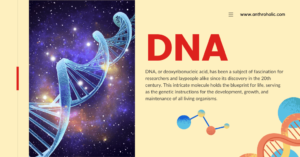AI Answer Evaluation Platform Live Now. Try Free Answer Evaluation Now
Serology
Serology, derived from the Latin word ‘serum’, refers to the scientific study of blood serum and other bodily fluids. It is a crucial branch of immunology and is primarily used to diagnose and monitor disease progression, with applications in various medical fields, including anthropology [1].

Historical Context
The application of serology in anthropology first surfaced during the early 20th century, when it was primarily used to determine blood relationships within populations. The growth of molecular anthropology and genomics has expanded the role of serology, which is now used to study genetic diversity and population migration patterns [2].
Evolution of Serological Studies
- 1920s-1930s: Initial use of serology to determine blood types.
- 1940s-1960s: Identification of additional blood group systems.
- Late 20th Century: Expansion to genetic studies.
- 21st Century: Widespread use in molecular anthropology and genomic studies.
Serology in Anthropology
Serology can help researchers understand population structures and evolution by examining serological variations among different groups.
Genetic Diversity
Serological studies enable anthropologists to analyze the genetic diversity of a population. By examining the variety in blood antigens, researchers can infer the level of genetic variability within a group, providing insight into its evolutionary history and adaptability [3].
Migration and Population Studies
Migration studies are another significant aspect where serological methods play a crucial role. The distribution of different blood groups and serological traits can indicate historical migration patterns, allowing anthropologists to trace the journey of human populations across the globe [4].
Interpretation of Serological Data
Interpretation of serological data can be complex, requiring careful statistical analysis. Genetic drift, mutation, and selection are the primary factors that might affect serological trait distribution within a population [5].
Challenges in Interpreting Serological Data
- Genetic Drift: Random changes in gene frequencies can lead to misinterpretation of population structures.
- Mutation: New antigen variants can emerge due to mutations, affecting the interpretation of genetic diversity.
- Selection: Natural selection might favor certain serological traits, affecting their distribution within a population.
Methodologies in Serological Studies
Serological methods utilized in anthropological studies range from basic blood group typing to sophisticated antigen-antibody reactions.
Basic Blood Group Typing
This is the earliest form of serological testing, where antigens on red blood cells are identified to determine an individual’s blood group. The ABO and Rh system are the most commonly studied.
Antibody Screening
Antibody screening involves detecting and identifying antibodies in an individual’s serum. This can give insights into an individual’s immune response and help trace their genetic lineage.
Crossmatching
Crossmatching is used in organ transplantation to detect any potential reactions between the donor and recipient. In anthropology, it can be used to understand the compatibility among population groups.
Applications in Forensic Anthropology
Serology has found significant application in the field of forensic anthropology. This discipline utilizes serological techniques to identify human remains and assist in criminal investigations.
Identification of Human Remains
Serological tests can provide crucial information such as blood type and other genetic markers, contributing to the identification of unknown human remains.
Criminal Investigations
In criminal cases, serology is used to identify bodily fluids found at crime scenes. This can provide critical leads and help pinpoint potential suspects.
Ethical Considerations
While serology holds immense potential in anthropological studies, ethical considerations must be taken into account, especially when dealing with human subjects and sensitive data.
Informed Consent
Informed consent must be obtained from all participants in serological studies. This includes explaining the purpose of the study, the procedures involved, and the potential risks and benefits.
Privacy and Confidentiality
Researchers must ensure the privacy and confidentiality of participants’ data. This is particularly important when dealing with genetic information, which can potentially be misused.
Recent Developments
In the 21st century, advancements in technology have allowed serology to play a pivotal role in forensic anthropology. For instance, serological tests are used to identify human remains by determining the blood group and other genetic markers [6].
Conclusion
Serology’s role in anthropology cannot be overstated. From understanding population diversity and migration patterns to its application in forensic anthropology, serological studies continue to provide valuable insights into human evolution and society. With the ongoing advancements in genomic technologies, the potential for further expansion of serology in anthropology is vast.
References
[1] Landsteiner, K. (1901). “On Agglutination Phenomena in Normal Human Blood,” Wiener Klinische Wochenschrift.
[2] Boyd, W.C. & Boyd, L.G. (1931). “An Introduction to Immunogenetics and Anthropogeny,” Scientific American.
[3] Mourant, A.E. et al. (1976). “The Distribution of the Human Blood Groups,” Oxford: Blackwell Scientific.
[4] Cavalli-Sforza, L.L. (1997). “Genes, Peoples, and Languages,” Proceedings of the National Academy of Sciences.
[5] Nei, M. & Roychoudhury, A.K. (1993). “Evolutionary Relationships of Human Populations on a Global Scale,” Molecular Biology and Evolution.
[6] Gill, P. (2001). “Application of DNA Methods to Forensic Identification,” Forensic Science International.




